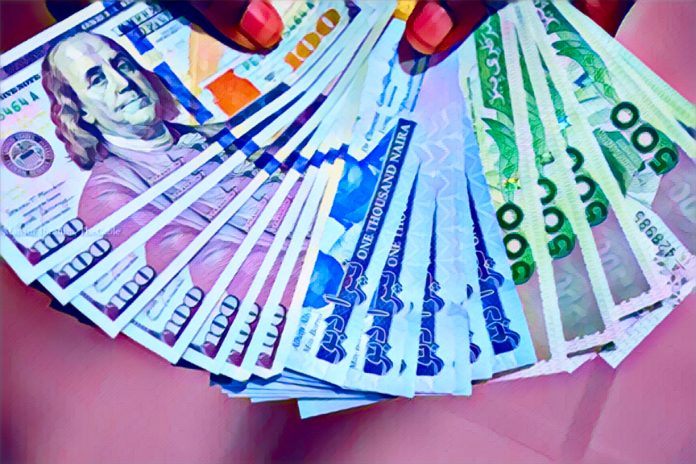Key Points
-
The dollar to naira exchange rate held near ₦1,465 officially and ₦1,485 in the parallel market.
-
Analysts credit CBN’s interventions for the naira’s recent steadiness.
-
Inflation and limited foreign reserves remain key risks to stability.
On Tuesday, October 15, 2025, the exchange rate between the US dollar and the Nigerian naira stayed mostly the same. This was because traders and analysts saw that there wasn’t much going on in either the official or parallel markets. The relative calm comes at a time when the Central Bank of Nigeria (CBN) is working to stabilise the naira through targeted interventions and tighter liquidity control.
Commercial banks and bureau de change operators in Lagos and Abuja say that the naira traded for about ₦1,465 per dollar at the Nigerian Autonomous Foreign Exchange Market (NAFEM), which is the official window.
In the parallel market, rates were around ₦1,485 per dollar. People in the market said that the gap between the two rates has gotten a little smaller in the past few weeks because there is more dollar supply and better regulatory oversight.
The official window stays the same even though the policy changes
Under Governor Olayemi Cardoso, the CBN has stuck to a plan of injecting dollars into the economy at random times and managing foreign reserves to keep things stable. The apex bank has also made rules about speculative trading stricter and told banks not to round-trip or hoard money.
A senior trader at a Tier-1 commercial bank in Lagos, who didn’t want to be named, said that the stability shows how strict the CBN has become. The trader said, “We’re seeing fewer erratic movements because the Central Bank has consistently defended the naira at key points.” “Demand is still high, but there is more liquidity now than there was in September.”
Cardoso has said many times that his goal is to bring back trust in the market and bring together exchange windows without letting the naira become vulnerable to swings in speculation.
The parallel market shows underlying pressure
In Lagos, Abuja, and Kano, bureau de change operators said the naira was worth between ₦1,480 and ₦1,490 to the dollar. This is a little stronger than last week’s average of ₦1,495. Dealers said that the small recovery was due to a drop in demand from importers and an increase in money sent home by Nigerians living abroad.
But the fact that there is still a premium in the parallel market shows that Nigeria’s currency system is still under pressure. Analysts say that the gap between the two markets will probably stay the same until the country’s foreign reserves, which are now about $33.4 billion, grow in a way that lasts.
According to a report by Vanguard news, Dr. Ifeoma Nwokedi, an economist at the Nigerian Economic Summit Group (NESG), said that the government’s plan has helped calm short-term volatility, but she warned that long-term stability needs higher export earnings. She said, “As long as Nigeria relies heavily on imports and oil receipts are unpredictable, the dollar to naira exchange rate will keep reacting to shocks.”
The future of the dollar to naira exchange rate
In the next few weeks, we may find out how strong the naira really is. Oil prices have gone up a little, and they are now trading at about $86 per barrel. Analysts say that if production stays steady above 1.5 million barrels per day, this could help Nigeria’s dollar inflows.
There are still worries about inflation, which is currently at 28.9 percent, and foreign investors are hesitant because they don’t know what the government will do and there are security risks. Unless there is a big change in fiscal or monetary policy, the exchange rate between the dollar and the naira will probably stay between ₦1,450 and ₦1,500.
The message for businesses, especially those that rely on imports, is still to be careful. An importer of industrial materials in Onitsha said, “We’re changing our projections every week.” “Yes, there is stability, but everyone is waiting to see what happens after the end of the year.”



